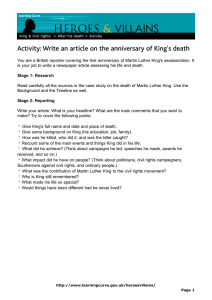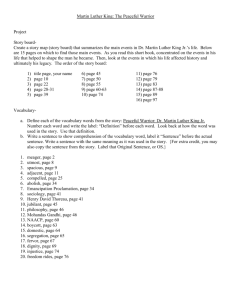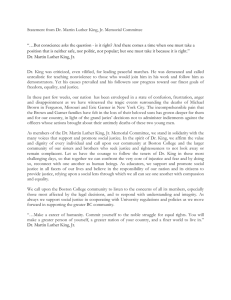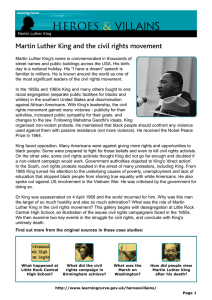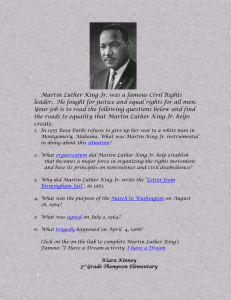Martin Luther – Part 2 Reluctant Revolutionary
advertisement
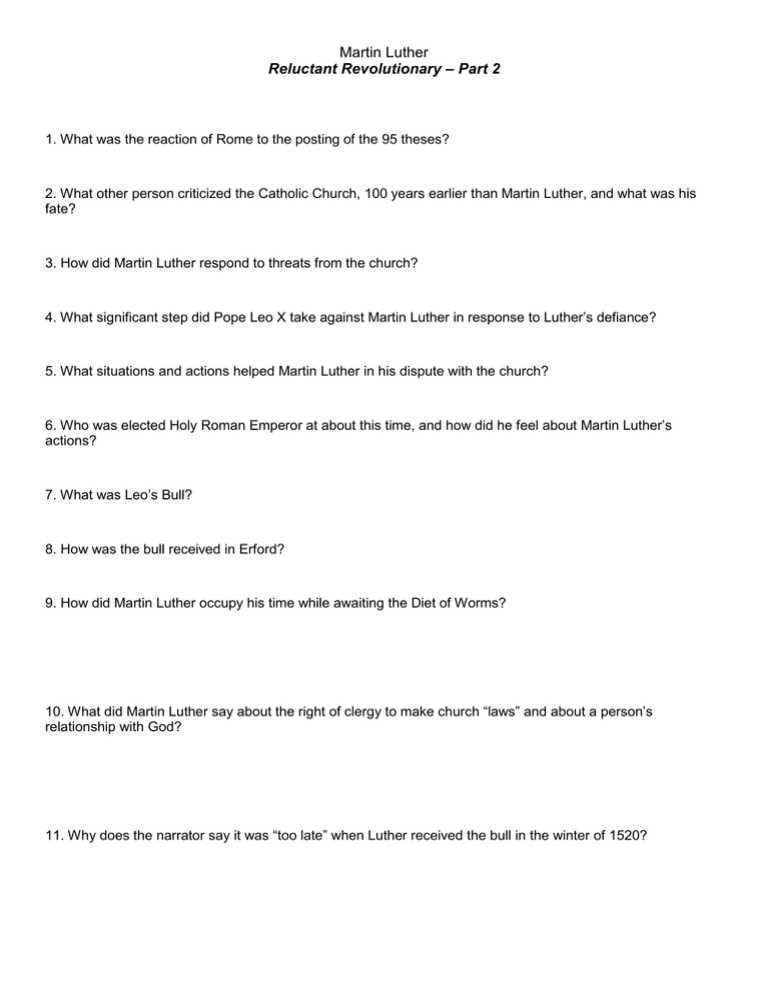
Martin Luther Reluctant Revolutionary – Part 2 1. What was the reaction of Rome to the posting of the 95 theses? 2. What other person criticized the Catholic Church, 100 years earlier than Martin Luther, and what was his fate? 3. How did Martin Luther respond to threats from the church? 4. What significant step did Pope Leo X take against Martin Luther in response to Luther’s defiance? 5. What situations and actions helped Martin Luther in his dispute with the church? 6. Who was elected Holy Roman Emperor at about this time, and how did he feel about Martin Luther’s actions? 7. What was Leo’s Bull? 8. How was the bull received in Erford? 9. How did Martin Luther occupy his time while awaiting the Diet of Worms? 10. What did Martin Luther say about the right of clergy to make church “laws” and about a person’s relationship with God? 11. Why does the narrator say it was “too late” when Luther received the bull in the winter of 1520? 12. What did Luther expect at the Diet of Worms? 13. How was Martin Luther greeted along the way to Worms? 14. Who was present at the Diet of Worms? 15. What demand was made by the papal ambassador? 16. What was Martin Luther’s response to the papal demand? 17. What was the result of the deliberation of Martin Luther’s fate at the Diet of Worms? 18. How did Martin Luther combat depression, boredom, and anxiety while under Prince Frederick’s protection in the castle at Wartburg? 19. What unanticipated consequence did Martin Luther’s successful confrontation with the church have within the German states? 20. How was German society shifting when Martin Luther returned to Wittenberg in the spring of 1522? 21. What was Martin Luther’s reaction to these shifts? 22. How did social and political life change in the years following Luther’s return to Wittenberg? 23. What group did Martin Luther single out for attack in his later years? 24. How did Martin Luther spend his final years, and when did he die? Write a Compare and Contrast or Change and Continuity thesis using two of your PERSIAN themes and the topic/content of the film you are viewing. These may be very broad and involve outside sources (example: comparing and contrasting the French Revolution with the Russian Revolution.) __________________________________________________________________________________________ __________________________________________________________________________________________ __________________________________________________________________________________________ __________________________________________________________________________________________ __________________________________________________________________________________________ __________________________________________________________________________________________ __________________________________________________________________________________________ __________________________________________________________________________________________ __________________________________________________________________________________________

